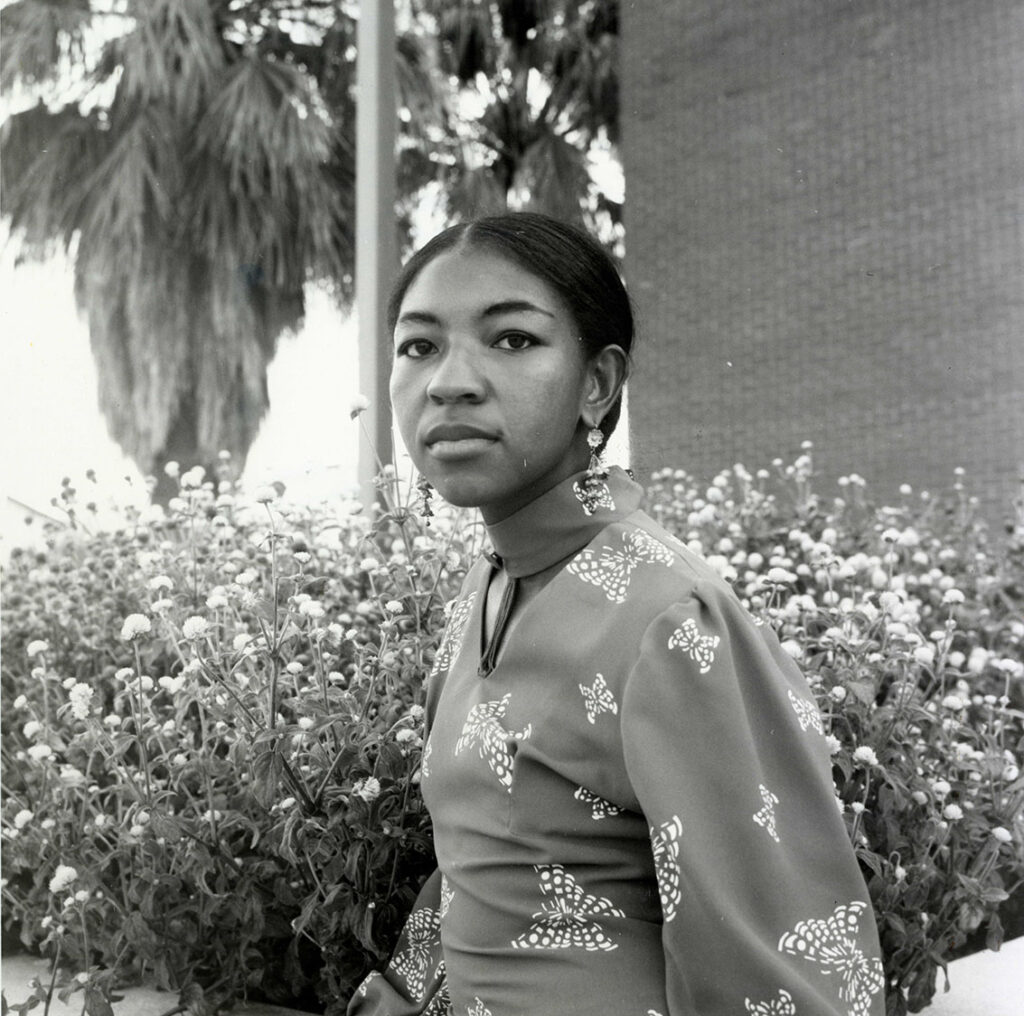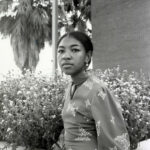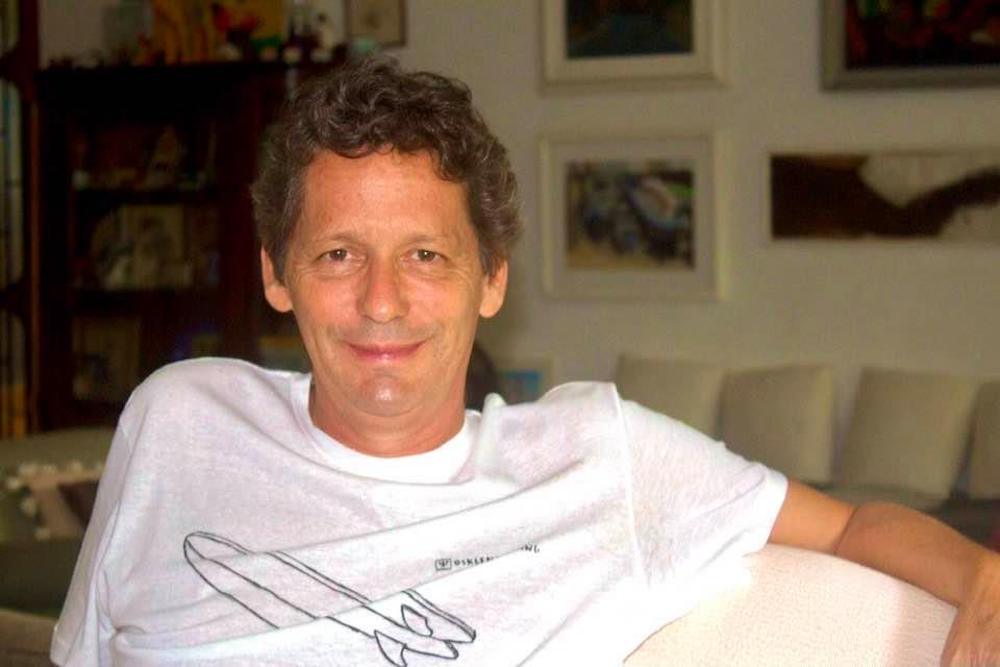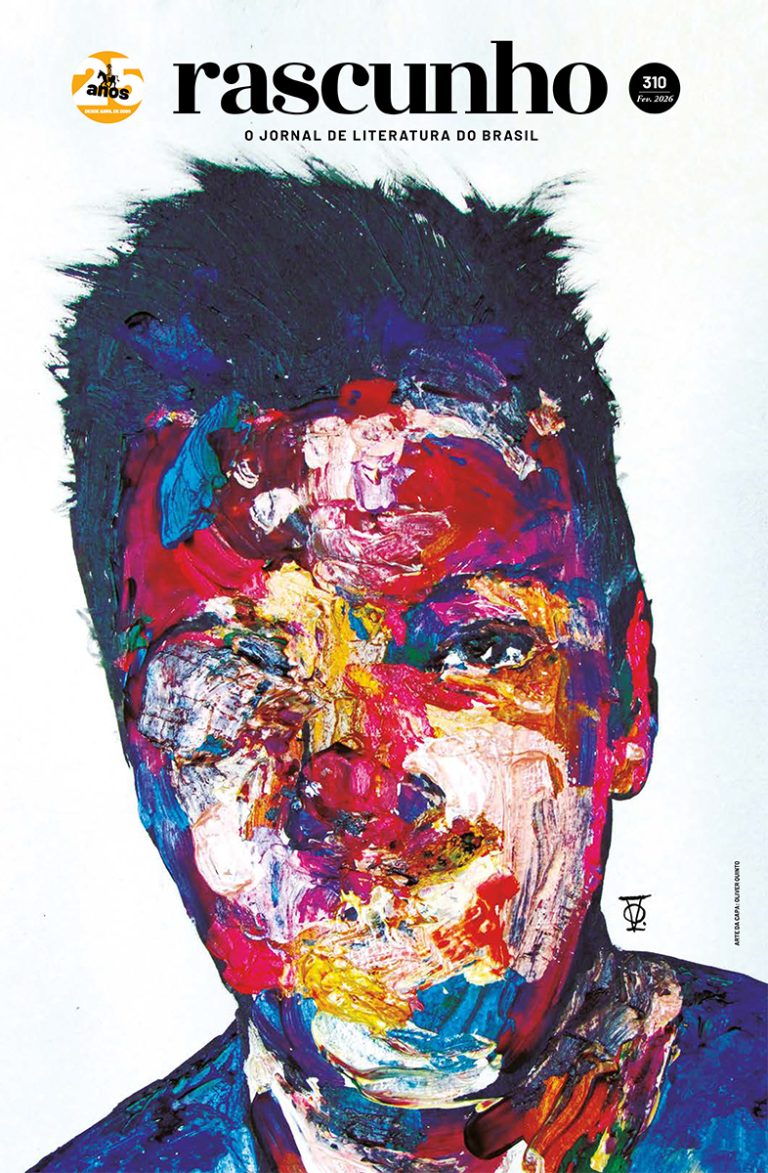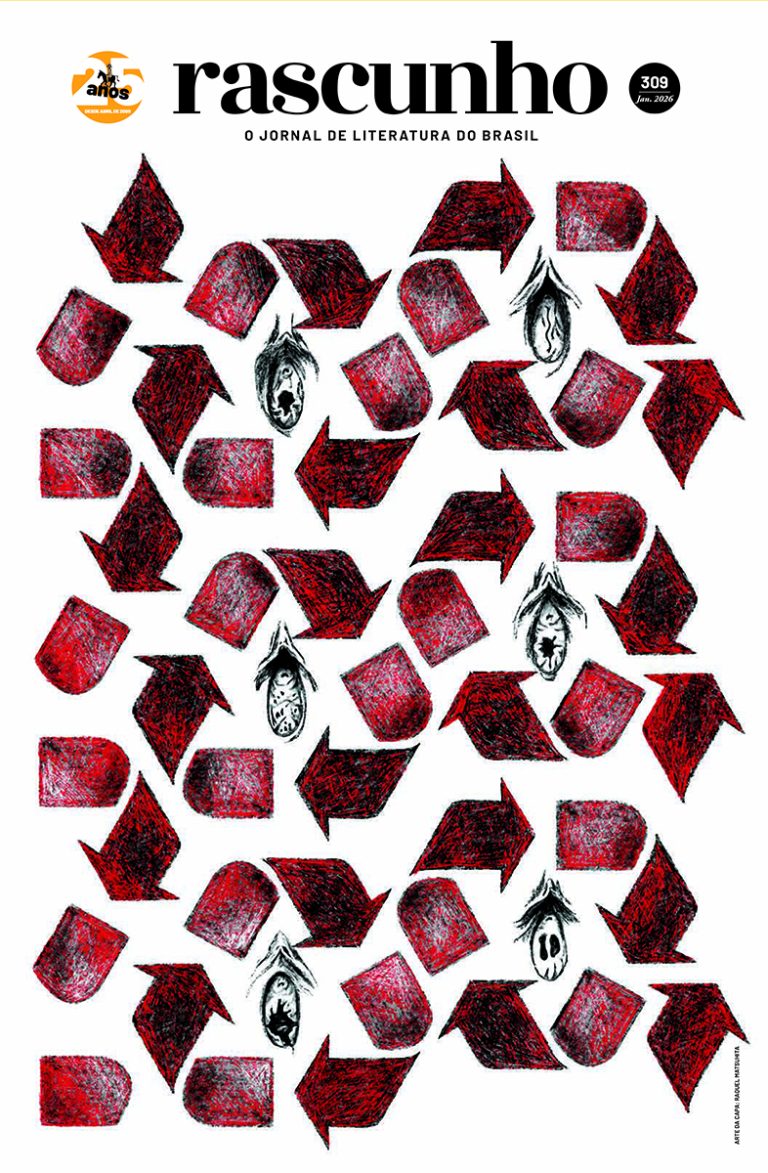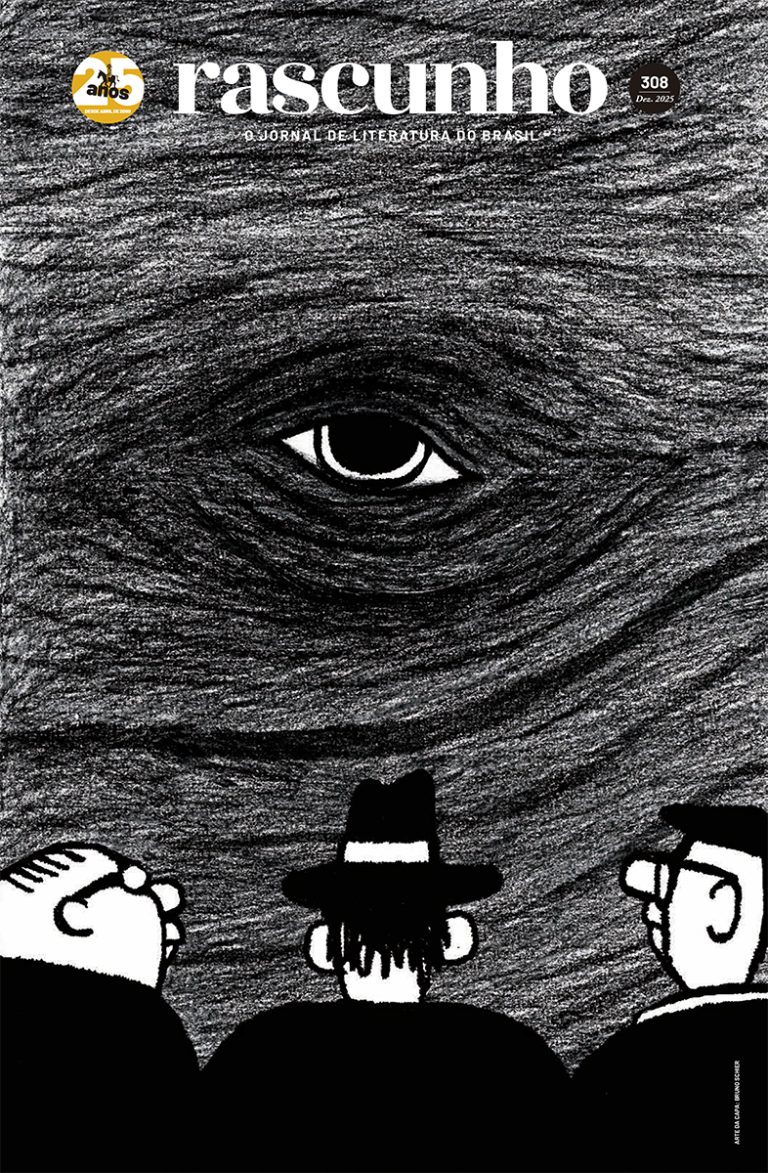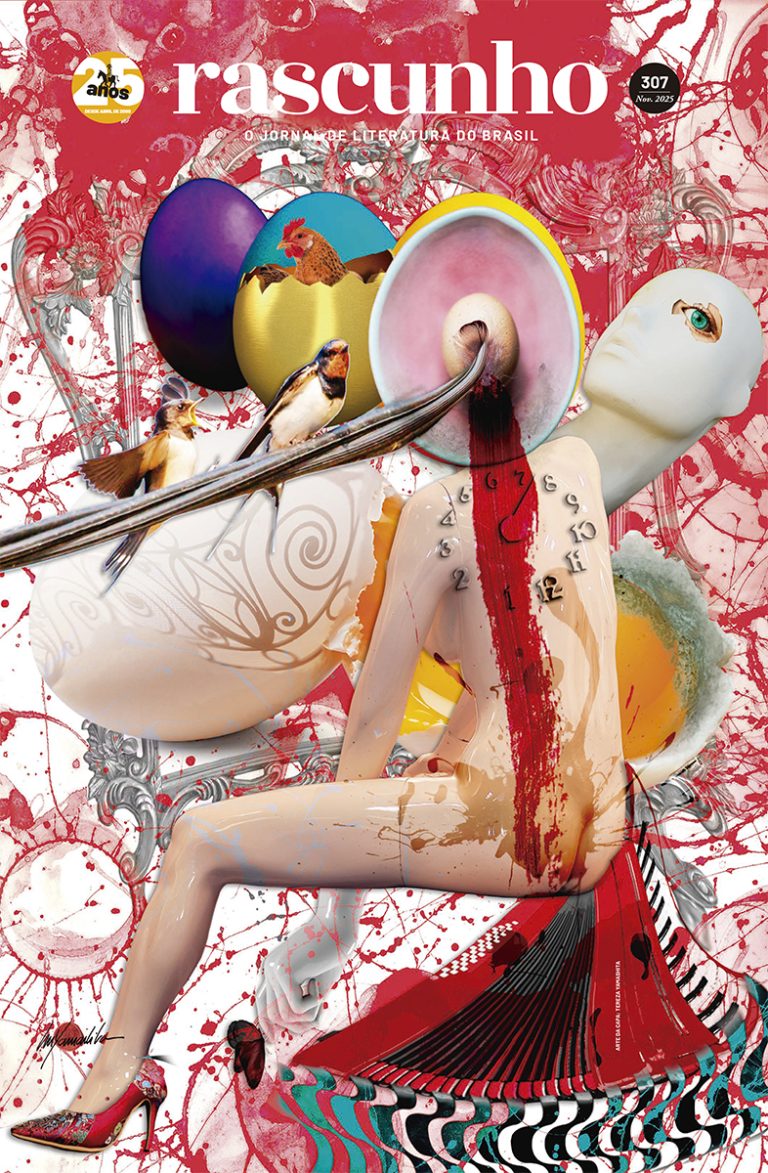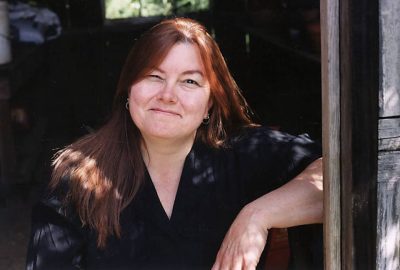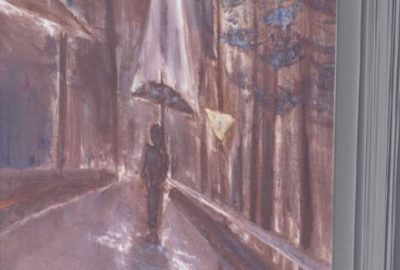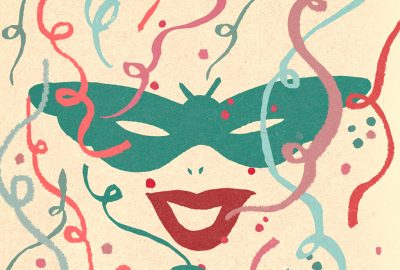Tradução e seleção: André Caramuru Aubert
Twenty Year marriage
You keep me waiting in a truck
with its one good wheel stuck in the ditch,
while you piss against the south side of a tree.
Hurry. I’ve got nothing on under my skirt tonight.
That still excites you, but this pickup has no windows
and the seat, one fake leather thigh,
pressed close to mine is cold.
I’m the same size, shape, make as twenty years ago,
but get inside me, start the engine;
you’ll have the strength, the will to move.
I’ll pull, you push, we’ll tear each other in half.
Come on, baby, lay me down on my back.
Pretend you don’t owe me a thing
and maybe we’ll roll out of here,
leaving the past stacked up behind us;
old newspapers nobody’s ever got to read again.
Vinte anos de casamento
Você me deixa esperando na caminhonete
com a roda boa atolada na valeta,
enquanto você mija no lado sul de uma árvore.
Corra. Eu não estou com nada por baixo da minha saia hoje à noite.
Isso ainda te excita, mas esta picape não tem janelas
e o assento, uma coxa de couro falso,
que encosta na minha, é frio.
Eu tenho o mesmo corpo, estou como há vinte anos,
mas me penetre, ligue o motor;
você tem a força, a gana de se mover.
Eu puxo, você empurra, vamos nos rasgar ao meio.
Venha, amor, me ponha deitada.
Finja que você não me deve nada
e quem sabe a gente saia daqui,
deixando o passado empilhado atrás de nós;
jornais velhos que ninguém jamais lerá de novo.
…..
Passage
for Allen Ginsberg
Sunflowers beside the railroad tracks,
sunflowers giving back the beauty God gave you
to one lonely traveler
who spies you from a train window
as she passes on her way to another train station.
She wonders if she were like you
rooted to your bit of earth
would she be happy,
would she be satisfied
to have the world glide and not regret it?
For a moment, she thinks so,
then decides that, no, she never could
and turns back to her book of poetry,
remembering how hard it was to get here
and that flowers have their places as people do
and she cannot simply exchange hers for another,
even though she wants it.
That’s how it is.
Her mother told her.
Now she believes her,
although she wishes she didn’t.
At fifty-three, she feels the need
to rebel against the inevitable winding down.
She already feels it in her bones,
feels artery deterioration, and imagines
cancerous indications on medical charts
she hopes will never be part of her life,
as she turns back to the window
to catch the last glimpse of the sunflowers
that sent her thoughts on a journey
from which she knows she will never return,
only go on and on
and then just go.
Passagem
Para Allen Ginsberg
Girassóis atrás dos trilhos dos trens,
girassóis retribuindo a beleza que Deus deu
a uma solitária viajante
que espia da janela do trem
enquanto passa em direção a uma outra estação.
E ela imagina se fosse igual a vocês
presa ao seu pedacinho de terra
se ela seria feliz,
se ela ficaria satisfeita,
em deixar o mundo ir passando, e não se arrepender?
Por um instante, ela acha que sim,
então decide que não, que jamais conseguiria
e volta ao seu livro de poemas,
lembrando-se de quão difícil foi chegar até aqui
e que as flores têm seus lugares assim como as pessoas
e que ela simplesmente não poderia trocar de lugar com uma,
mesmo que quisesse fazê-lo.
Assim são as coisas.
A mãe contou a ela.
Agora ela acredita na mãe,
embora desejasse não crer.
Aos cinquenta e três anos, ela sente a necessidade
de se rebelar contra a inevitável decadência.
Ela já sente isso em seus ossos,
sente a deterioração das artérias, e imagina
os sinais de câncer nas imagens dos exames médicos
que espera que jamais farão parte de sua vida,
enquanto olha para trás, na janela
para ainda ver um pouco dos girassóis
que a enviaram para uma viagem
da qual ela sabe que jamais voltará,
apenas seguirá indo e indo
e então apenas irá.
…..
Woman to man
Lightning hits the roof,
shoves the knife, darkness,
deep in the walls.
They bleed light all over us
and your face, the fan, folds up,
so I won’t see how afraid
to be with me you are.
We don’t mix, even in bed,
where we keep ending up.
There’s no need to hide it:
you are snow, I’m coal,
I’ve got the scars to prove it.
But open your mouth,
I’ll give you a taste of black
you won’t forget.
For a while, I’ll let it make you strong,
make your heart lion,
then I’ll take it back.
De mulher para homem
Um raio bate no telhado,
enfia a faca, trevas,
fundo nas paredes.
Elas sangram luz por toda a parte
e seu rosto, o ventilador, se dobra,
então eu não vejo com quanto medo
você está de ficar comigo.
Nós não combinamos, nem na cama,
pra onde sempre acabamos indo.
Não é preciso esconder isso:
você é neve, eu sou carvão,
eu tenho cicatrizes como prova.
Mas abra a sua boca,
eu vou te dar um gosto de negra
de que você não vai se esquecer.
Por um tempo, eu vou te deixar forte,
fazer um leão de seu coração,
e então eu vou pegá-lo de volta.
…..
Visitation
“Heaven and earth.
What else is there?”
Said Walt Whitman in your dream,
then he smiled at you
and disappeared,
but you wanted him to come back.
You wanted to tell him that there was more.
There was the hardsell
you had to give yourself to stay alive
HIV positive five years
and counting backward to the day
your other life was stripped
bare of its leaves
at the start of the war of disease
against the body.
You don’t have AIDS,
yet, you know it’s coming
like a train whose whistle
you can hear before you see it.
When you feel the tremors
of internal earthquake,
will you do the diva thing?
Will you Rudolf Nureyev your way on stage,
so ravaged and dazed
you don’t know who you are,
or commit your public suicide in private,
windows open wide
on the other side,
where your father, Walt is waiting
to take you in his arms
like a baby returning there on walking,
beside the picnic basket
in the long grass,
where the brittle pages of a book
are turning to the end.
Aparição
“Céu e terra.
O que mais existe?”
Disse Walt Whitman no seu sonho,
e então ele sorriu para você
e desapareceu,
mas você queria que ele voltasse.
Você queria contar a ele que existia mais.
Houve a difícil negociação
que precisou encarar para seguir vivo
HIV positivo por cinco anos
E em contagem regressiva
a sua outra vida foi retalhada
teve as folhas arrancadas
no começo da guerra da doença
contra o corpo.
Você não tem AIDS,
ainda, você sabe que ela está vindo
como um trem cujo apito
você consegue ouvir muito antes de vê-lo.
Quando você sentir os tremores
de um terremoto interno,
você fará aquela coisa de diva?
Fará Rudolf Nureyev em seu caminho até o palco,
tão devastado e entorpecido
a ponto de nem saber quem você é,
ou cometerá privadamente o seu suicídio público,
janelas bem abertas
no outro lado,
onde seu pai, Walt está esperando
para tomá-lo em seus braços
como um bebê que para lá volta andando,
perto da cesta de piquenique
na grama alta,
onde as páginas quebradiças de um livro
estão virando para o fim.
…..
Child beater
Outside, the rain, pinafore of gray water, dresses the town
and I stroke the leather belt,
as she sits in the rocking chair,
holding a crushed paper cup to her lips.
I yell at her, but she keeps rocking;
back, her eyes open, forward, they close.
Her body, somehow fat, though I feed her only once a day,
reminds me of my own just after she was born.
It’s been seven years, but I still can’t forget how I felt.
How heavy it feels to look at her.
I lay the belt on a chair
and get her dinner bowl.
I hit the spoon against it, set it down
and watch her crawl to it,
pausing after each forward thrust of her legs
and when she takes her first bite,
I grab the belt and beat her across the back
until her tears, beads of salt-filled glass, falling,
shatter on the floor.
I move off. I let her eat,
while I get my dog’s chain leash from the closet.
I whirl it around my head.
O daughter, so far, you’ve only had a taste of icing,
are you ready now for some cake?
Agressora de criança
Lá fora, a chuva, um avental de água cinzenta, veste a cidade
e eu sacudo o cinto de couro,
enquanto ela está sentada na cadeira de balanço,
apertando um copo de papel amassado contra seus lábios.
Eu grito com ela, mas ela continua se balançando;
para trás, seus olhos abrem, para frente, eles fecham.
Seu corpo, meio gordo, apesar de eu alimentá-la apenas uma vez
ao dia,
me lembra o meu próprio logo que ela nasceu.
Já faz sete anos, mas eu ainda não me esqueço de como me senti.
Quão pesado foi olhar para ela.
Eu deixo o cinto em uma cadeira
e pego para ela a tigela do jantar.
Eu bato a colher contra a tigela, coloco-a embaixo
e observo minha filha se arrastar para ela,
parando a cada movimento de seus joelhos
e quando ela dá a primeira mordida,
eu pego o cinto e bato nas costas dela
até que suas lágrimas, gotas de vidro salgado, caindo,
se quebrem no chão.
Eu saio de lado. Eu a deixo comer,
enquanto eu pego no armário a guia de corrente do cachorro.
Eu a enrolo em volta de minha cabeça.
Ó filha, até agora você só sentiu o gosto do glacê,
você está pronta para experimentar o bolo?
…..
Family portrait, 1960
“Sutton,” my wife says,
“the girls won’t wash between their legs.”
What am I supposed to do about it? I think,
having just come in
from buying round steak
that I will try to tenderize with a mallet,
then salt and pepper, dredge in flour
and fry
and serve with green peas, biscuits, gravy.
But Stella (Peggy to her friends),
yells from her bed,
“Girls, go in the bathroom
and take off your clothes.”
She leans back on her pillow,
a box of Melba toast,
cradled in one arm
like a cardboard teddybear,
a barrier against the poverty and disappointment
which have put her there. Colitis, doctor says.
And where is this? —
one of those apartments
with a courtyard in Los Angeles,
where waitressing in cafe once
she served the guy from TV,
Route 66, that is, coffee,
but now I bring her coffee, bring her cigarettes
and pretend to sympathize,
but now my daughters stand before me,
wearing only shower caps:
Roslynn, seven years,
thin and unpredictable,
and Florence, eleven,
also thin and obedient to a fault.
I hand them washcloths, soap,
and shoo them in the shower.
They stand in the water
and wait for my commands.
“Go on,” I say, “you know how to start.”
Necks and shoulders, chests, backs and bellies.
Down they go and in between the smooth,
hairless entrances into themselves.
“You call that washing?” I say,
and lean forward on my toes,
bend my knees and spread them.
“See,” I say
and use my hand between my own legs,
“like this, get in there,
scrub your little pussies.”
After dinner,
Florence washes dishes, Roslynn dries.
Stella watches television,
while I doze
and chaos kept at bay,
lies down to sleep with us
until daylight.
Retrato de família, 1960
“Sutton”, minha esposa fala,
“as meninas não se lavam entre as pernas.”
O que eu deveria fazer a respeito disso? Eu penso,
tendo acabado de chegar
de ter ido comprar carne de traseiro
que eu tentarei amaciar com um martelo,
depois salgar e apimentar, polvilhar na farinha
e fritar
e servir com ervilhas, bolinhos e molho.
Mas Stella (Peggy, para as amigas),
grita lá da cama,
“Meninas, vão para o banheiro
e tirem suas roupas.”
Ela se recosta em seu travesseiro,
um pacote de torradas,
aconchegado em um braço
como um ursinho de papelão
uma barreira contra a pobreza e o desapontamento
que a pôs ali. Colite, o médico disse.
E onde é isto? —
um daqueles apartamentos
com um quintal, em Los Angeles,
onde trabalhando num café uma vez
ela serviu um cara da TV,
do Rota 66, foi isso, café,
mas agora sou eu quem leva café ela, quem leva seus cigarros
e finjo ser compreensivo,
mas agora minhas filhas estão de pé diante de mim,
vestindo apenas toucas de banho:
Roslynn, sete anos,
magra e imprevisível,
e Florence, também magra e muito obediente.
Eu dou a elas esponjas, sabão,
e as toco para o chuveiro.
Elas ficam na água
e esperam por minhas ordens.
“Comecem,” eu digo, “vocês sabem como começar.”
Pescoços e ombros, tórax, costas e barrigas.
Elas descem, e vão entre as macias,
impúberes reentrâncias dentro de si.
“Vocês chamam isso de limpeza?” eu digo,
e me curvo sobre os meus pés,
dobro meus joelhos e os afasto.
“Vejam”, eu digo
e ponho minha mão entre minhas próprias pernas,
“façam assim, entrem lá dentro,
esfreguem suas pequenas pererecas.”
Depois do jantar,
Florence lava os pratos, Roslynn seca.
Stella assiste televisão,
enquanto eu cochilo
e o caos fica distante,
se deita para dormir com a gente
até o nascer do dia.

